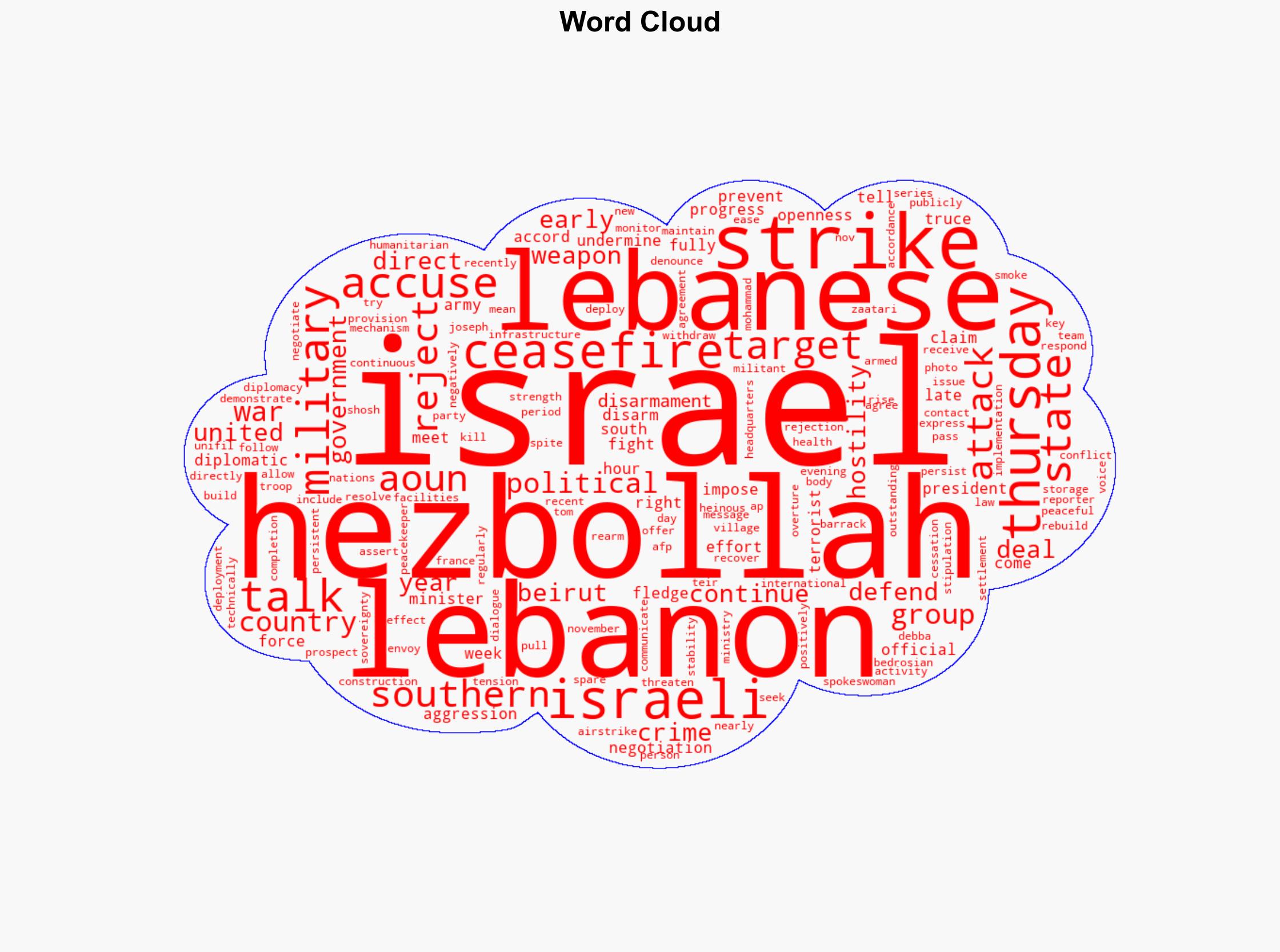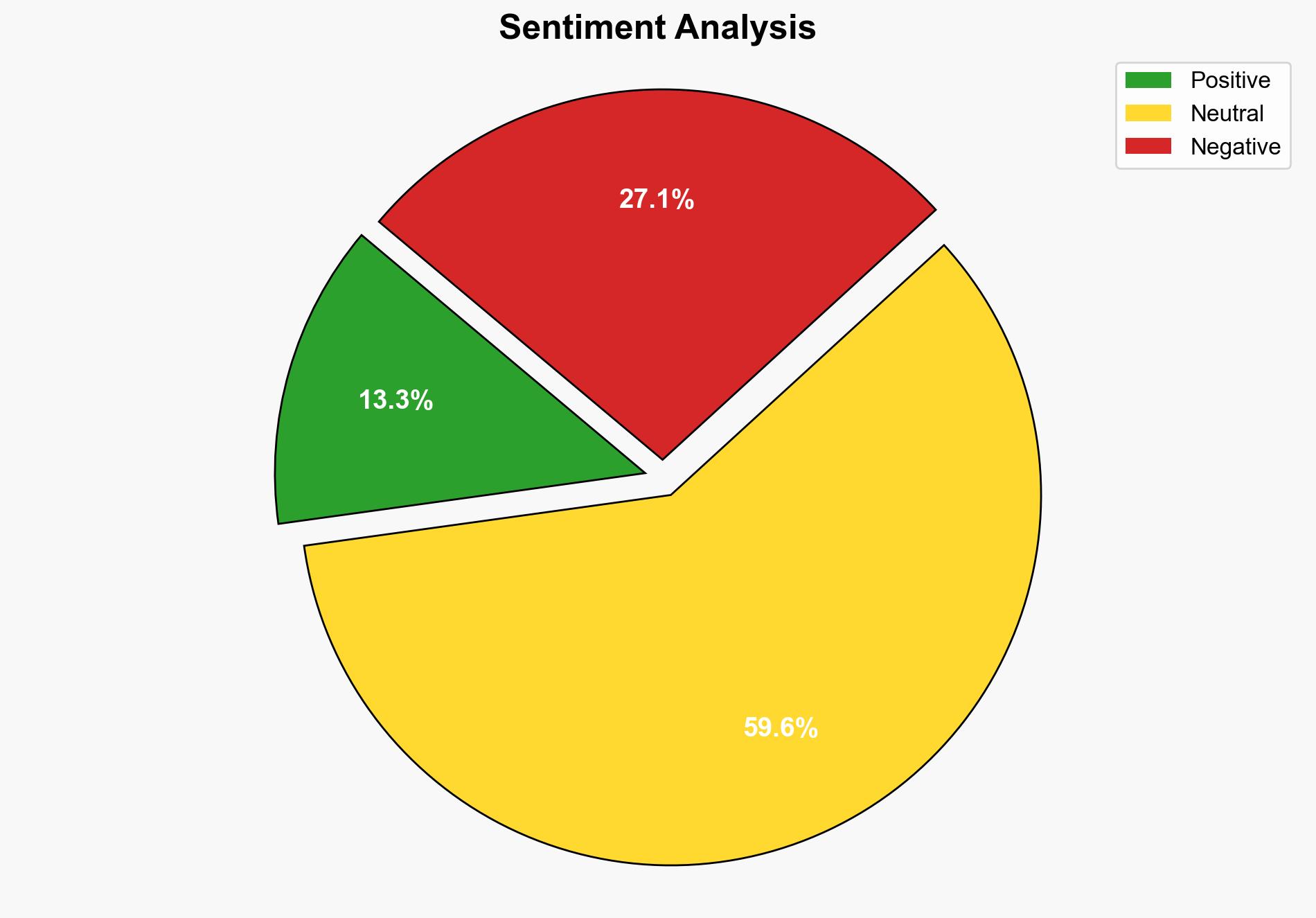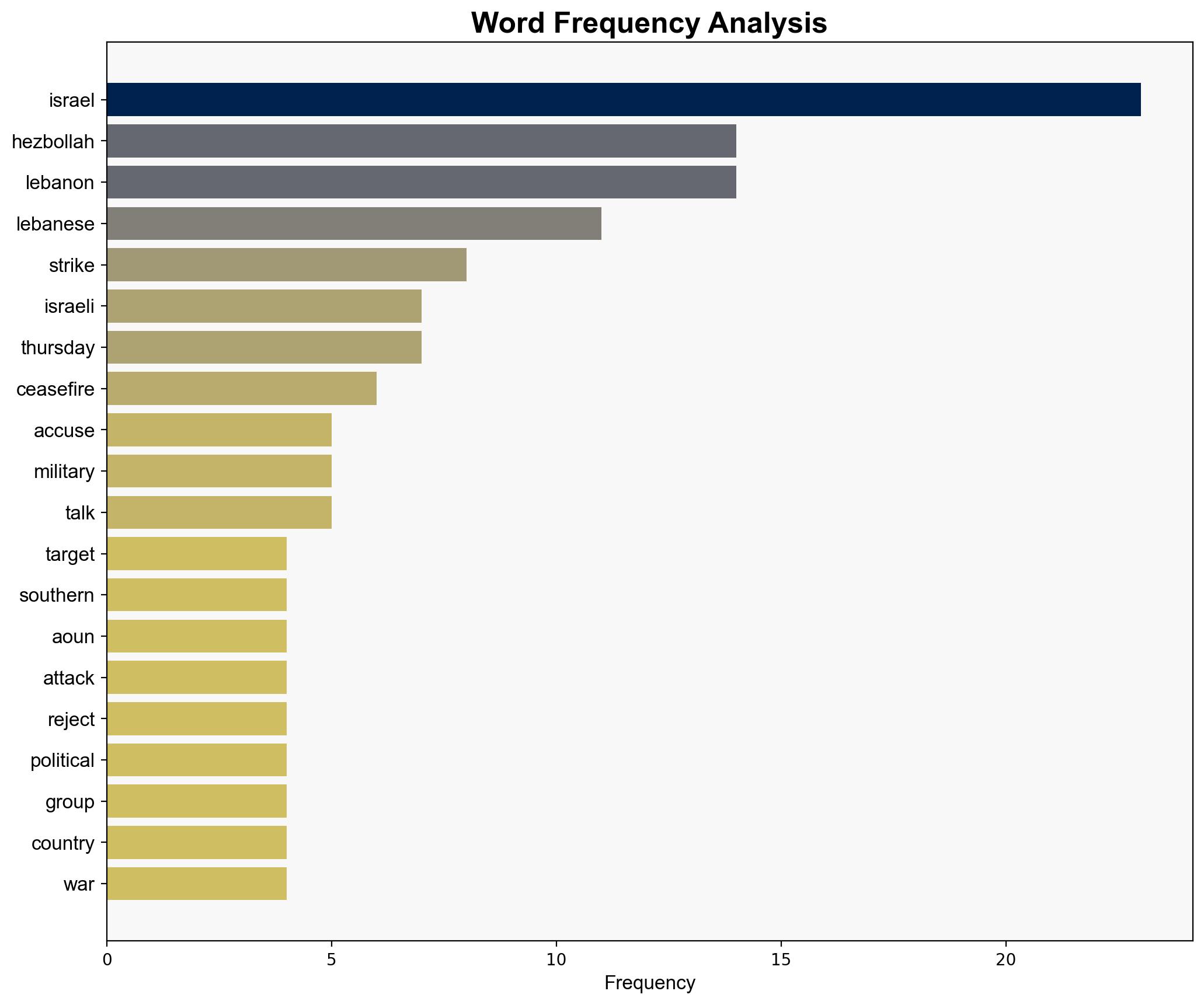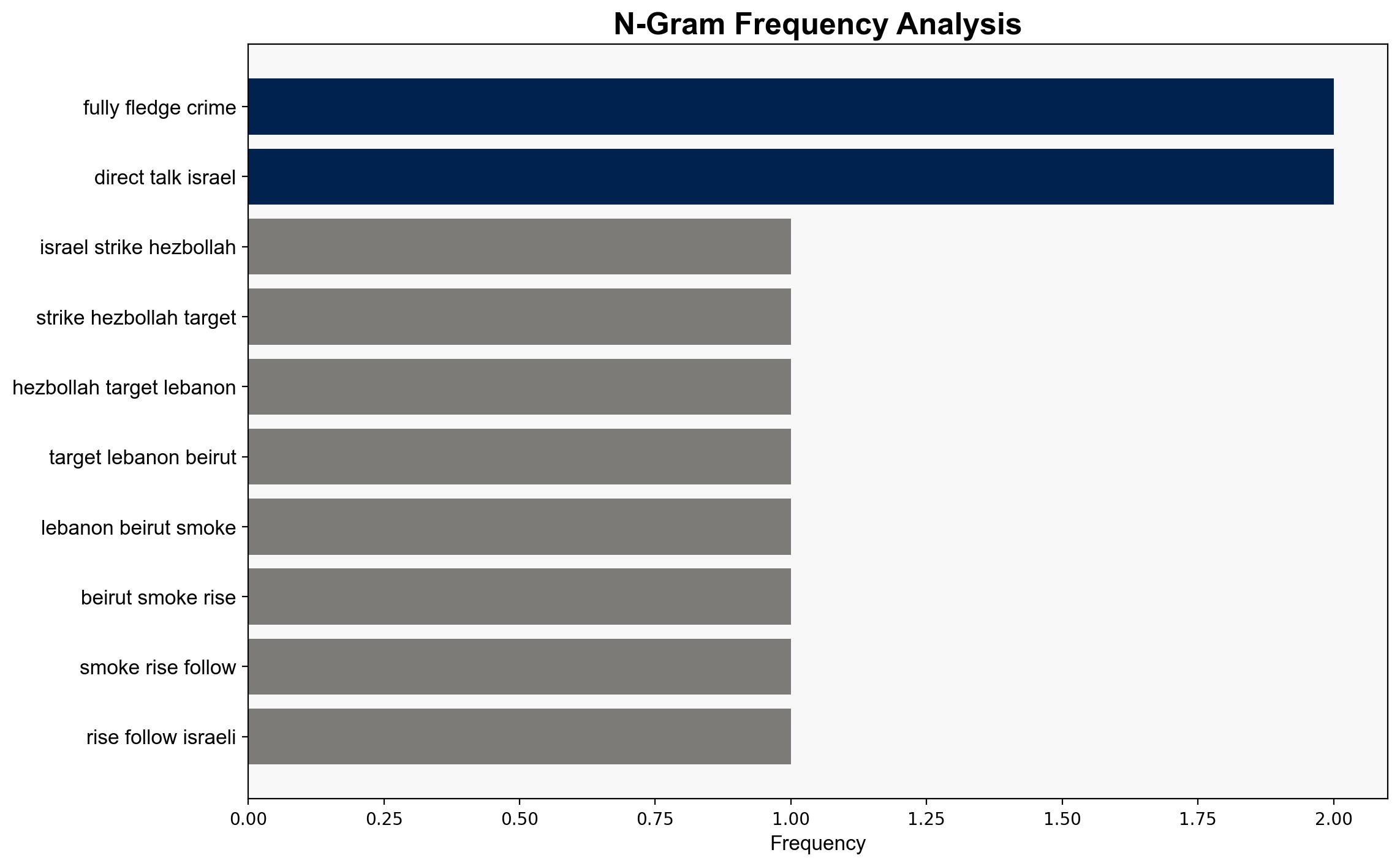Israel strikes Hezbollah targets in Lebanon – Hurriyet Daily News
Published on: 2025-11-07
Intelligence Report: Israel strikes Hezbollah targets in Lebanon – Hurriyet Daily News
1. BLUF (Bottom Line Up Front)
The most supported hypothesis is that Israel’s strikes are a strategic move to prevent Hezbollah from rebuilding its military capabilities, which Israel perceives as a direct threat. Confidence level is moderate due to ongoing regional complexities and lack of direct communication between the involved parties. Recommended action includes diplomatic engagement to de-escalate tensions and reinforce ceasefire agreements.
2. Competing Hypotheses
1. **Hypothesis 1**: Israel’s strikes are primarily defensive, aimed at preventing Hezbollah from rearming and posing a future threat. This is supported by Israel’s public statements about targeting “terrorist infrastructure” and weapon storage facilities.
2. **Hypothesis 2**: The strikes are a strategic maneuver to undermine Lebanese stability and pressure Hezbollah into political negotiations. This is suggested by the timing of the strikes following Lebanese openness to dialogue and accusations from Lebanese officials about Israel’s intentions.
Using the Analysis of Competing Hypotheses (ACH), Hypothesis 1 is better supported due to consistent Israeli military objectives and historical patterns of preemptive defense against perceived threats.
3. Key Assumptions and Red Flags
– **Assumptions**: It is assumed that Israel’s primary motivation is defensive. This may overlook potential political motivations.
– **Red Flags**: The absence of direct communication between Israel and Lebanon raises the risk of misinterpretation and escalation. The Lebanese military’s accusations could indicate potential bias or misinformation.
– **Blind Spots**: Limited insight into Hezbollah’s internal strategy and potential external influences from Iran complicate the analysis.
4. Implications and Strategic Risks
– **Escalation Risk**: Continued strikes could lead to broader regional conflict, drawing in other state and non-state actors.
– **Geopolitical Impact**: Strained Israel-Lebanon relations may affect broader Middle Eastern stability and influence U.S. and European diplomatic efforts.
– **Psychological Dimension**: Persistent conflict may erode public confidence in peace processes and diplomatic resolutions.
5. Recommendations and Outlook
- Engage in multilateral diplomacy involving key stakeholders like the United States, France, and United Nations to reinforce ceasefire agreements.
- Monitor Hezbollah’s activities and regional alliances to anticipate potential escalations.
- Scenario Projections:
- **Best Case**: Successful diplomatic intervention leads to renewed ceasefire and reduction in hostilities.
- **Worst Case**: Escalation into a full-scale conflict involving regional powers.
- **Most Likely**: Continued low-intensity conflict with intermittent diplomatic efforts.
6. Key Individuals and Entities
– Joseph Aoun
– Shosh Bedrosian
– Tom Barrack
– Hezbollah
– Israeli Government
7. Thematic Tags
national security threats, counter-terrorism, regional focus, Middle East conflict, diplomatic relations





